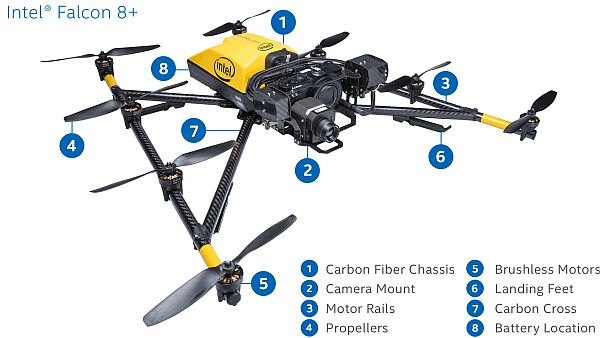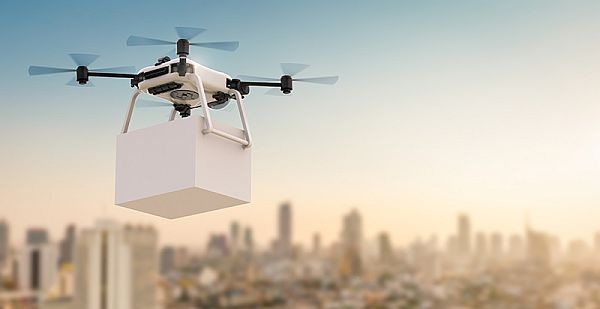Podcast: Play in new window | Download (Duration: 28:53 — 19.9MB)
The Intel Falcon 8+ becomes the first drone certified under UL 3030, DJI responds to security and privacy concerns, hydrogen fuel cells for drones, combating the Zika virus with drones, and an air taxi startup draws on an outside designer.
UAV News
First Unmanned Aircraft System (UAS) and Automated Guided Vehicle (AGV) Certified by UL
UL issued their first UL 3030 electrical system safety certification to the Intel® Falcon 8+ UAS. Anil Nanduri, VP and GM of Intel’s Drone Group said, “The Intel Falcon 8+ drone is designed for advanced flight performance with redundancy built in for safety and reliability. Our successful UL listing of the Intel Falcon 8+ drone to UL’s 3030 safety standard demonstrates Intel’s commitment to safe operations needed for commercial applications such as inspection, surveying and mapping.”
Video: Intel Falcon 8+ Drone
DJI releases findings of Kivu report to stem concerns that China might use DJI’s drones to spy on the U.S.
Kivu’s report on DJI’s UAV Data Transmission and Storage practices – Are DJI drones really spying for China?
DJI has been in the news over concerns that user data was transmitted to China. Some U.S. Government entities even issued directives prohibiting the use of DJI drones. In response, DJI asked McDermott Will & Emery to undertake an independent investigation and Kivu Consulting, Inc. was retained to conduct the investigation. The report concludes that “users have control over the types of data DJI drones collect, store, and transmit.” But there’s more to it…
UAV Propulsion Tech Bringing HES Hydrogen Solutions to U.S. Drone Market
Singapore’s HES Energy Systems Pte. Ltd has appointed UAV Propulsion Tech to be their authorized U.S. representative for lightweight hydrogen fuel systems for UAVs. Press release. [PDF]
‘Breakthrough’ in mosquito-packed drones to combat Zika in Brazil
The Zika virus will be combated in Brazil using drones to release millions of sterile laboratory-bred male mosquitoes. The male mosquitoes breed with females but no offspring are produced. Over time, the mosquito population is significantly reduced.
Lilium Air Taxi Startup Hires McLaren Designer Frank Stephenson
A noted supercar designer has joined Lilium as they develop an electric vertical take-off and landing jet.
UAV Video of the Week
Stunning Manta Ray Sighting Off Florida Coast
A new species of manta ray may have been discovered off the coast of Florida.
Mentioned
SMi’s third annual UAV Technology conference in Prague September 26-27, 2018.




 Ibrahim Jilani
Ibrahim Jilani